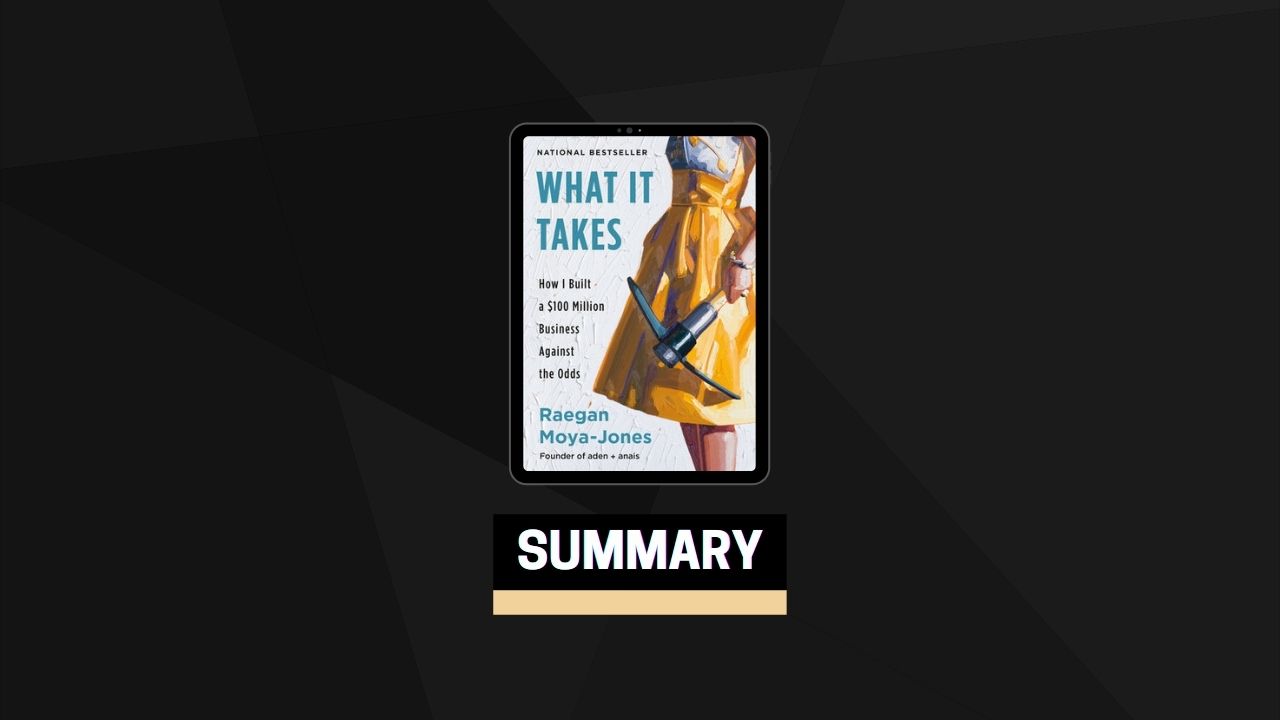Trust in Your Idea
There’s nothing wrong with being a freelancer or starting a business because you want flexibility in your schedule and a steady income. It takes initiative and drive to make a living on your own.
However, the argument against any “girly” company that allegedly underperforms is impacted by those of us who leave our jobs to freelance, and we won’t be able to see the full picture until we drill further down into the numbers.
All of this is to say that you should pursue what you want, without letting misleading stats or haters hold you back. Take the leap to do whatever it is you’ve been wanting to do, but don’t shy away from thinking bigger. Imagine if you were to grow your business to a global scale, if only for a moment.
Hard Work Beats B School
If you get your MBA and then go straight into your chosen industry, you’ll start with a higher salary, sure. And maybe you really would learn a lot by working for a start-up. But if you build a business, the amount of experience you’ll gain from the time you spend in the trenches is far beyond anything you could learn in a business-school classroom or under the wing of another employer. In other words, no one can teach you how to be an entrepreneur; you learn by doing it. Only 3 percent of graduates from over a hundred US and international MBA programs ventured down the entrepreneur’s path. And let’s not forget the price tag of this degree. The burden of six-figure student loan debt may also prevent many MBAs from becoming entrepreneurs. It’s definitely not easy to take on the stress of starting a business, especially when you’re worrying about making your student loan payments.
So don’t fall back on not having a certain background or degree or skill set as the reason you don’t make your leap. Four years of building your business from scratch, being in the weeds of all of it, will teach you more than years of sitting in a classroom learning theories and skills ever could.
Don’t Let Doubt Stop You
It’s not just your doubt that you’ll run into. You’ll have to deal with the doubts of your family, friends, and even your own employees. The only way to combat that is to have a healthy connection with your own intuition, your own inner voice.
It takes inner conviction to be able to follow your instincts in the face of other people’s doubts, especially when they’re telling you that you’re wrong to rely on something intangible, a gut feeling.
Remember, though, that doubt can sometimes be a good thing. It makes you stop to think about your course of action and ask questions about what you’re doing. It forces you to consider why you’re feeling the fear or doubt in the first place—to question whether it is based on something real or whether it’s just nerves getting the better of you.
Your job is to make sure that any emotions you have about your business—doubt, fear, even overexcitement—don’t consume and cripple you. Use your doubt as a tool instead of a deterrent, and don’t let anyone else see it. Sharing your doubt has a trickle-down effect on your business.
Redefine Risk
we should stop focusing on why women are allegedly risk averse, and instead consider what risk-taking means in the first place. What one person deems risky—based on a million little factors, from the size of their bank account to their place in the social order—another might view as harmless. Some of us think starting a business is inherently risky and that finding and keeping a full-time job is the safe bet. However, counting on your employer to be the sole provider of your income is a huge risk. Most people don’t understand that they can be fired at any time, or the company could fold—they falsely believe they have security.
It’s ridiculous to chastise women for being too cautious because they are women. It would make much more sense for aspiring entrepreneurs—men and women—to identify the specific risks they face and then determine how best to mitigate them.
Cash Is Queen
This is where you must be resourceful and creative. Susan Petersen, founder of Freshly Picked, a baby-goods company, had no access to capital whatsoever. She was pregnant and unemployed, and her husband earned just enough to support their family. Susan funded her business by banging the glass panes out of old windows and selling the metal for scrap. She then put the funds directly into her business, which quickly went from a small side hustle on Etsy.com to a company that earned $120,000 in the first year. Now, less than ten years in business later, Freshly Picked is generating millions in sales. Susan didn’t have a financial leg to stand on, but she grew her business from nothing into a multimillion-dollar brand through sheer determination and will.
There is hope for those who don’t want to or can’t turn to friends and family for money; in recent years, more and more options have emerged for entrepreneurs who need funding, including alternative and online lenders, crowdfunding, and grants, not to mention female-led funding groups like SheEO, private equity and venture capital firms that focus primarily on women-owned businesses, and angel investors that work with women.
Expect Surprises
it sucks to lose a friend. You lose friends here and there throughout life, true, but we went from being in the trenches together—riding the emotional wave of success after success, challenge after challenge—to never talking again, almost overnight.
If you can’t avoid an equal partnership, then you absolutely must have the uncomfortable, tough conversations up front while everyone is on good terms. Document and legalize the partnership, including what shares everyone gets, how disputes are resolved, and how the business is dissolved should everything go south. Perhaps most important, include in your contract how labor is divided and what roles everyone will be responsible for. There are so many scenarios that you just can’t foresee, so the best you can do is enlist the help of a good lawyer and document everything. Because
starting a business is a mad sport of juggling many balls while sprinting. It takes everything you’ve got to keep going, much less check in with each other and resolve issues. As soon as things go off the rails, anger replaces friendship and optimism. That’s when things get really complicated.
Lead Your Team
Ray Dalio is the founder of Bridgewater Associates, a company that changed the investment industry with his concept of “radical transparency.” Bridgewater Associates was eventually named by Fortune magazine as the fifth most important private company in the United States. In his book, Principles, which is part autobiography and part detailed description of Dalio’s methodology for making decisions, he preaches his philosophy of “radical transparency” and “radical truth”:
Learning to be transparent is . . . initially awkward, the more you do it, the more comfortable you will be with it . . . Imagine how many fewer misunderstandings we would have and how much more efficient the world would be and how much closer we all would be to knowing what’s true—if instead of hiding what they think, people shared it openly. . . I’ve learned firsthand how powerful this is in improving my decision making and my relationships.
Teams only work if everyone at the table is unafraid to say what they think, and if the person at the head of the table is willing to listen. If you’re at the head of the table, creating this kind of culture is up to you. A positive corporate culture, where it is made clear that you care about your employees, is vital to the health of your business, and there are challenges to maintaining such a culture in the face of exponential growth. Managing competing personalities, dealing with the personal stuff, is absolutely the hardest part of scaling an entrepreneurial business. If you’re able to treat your people with kindness and respect, you’ll get the best out of them.


